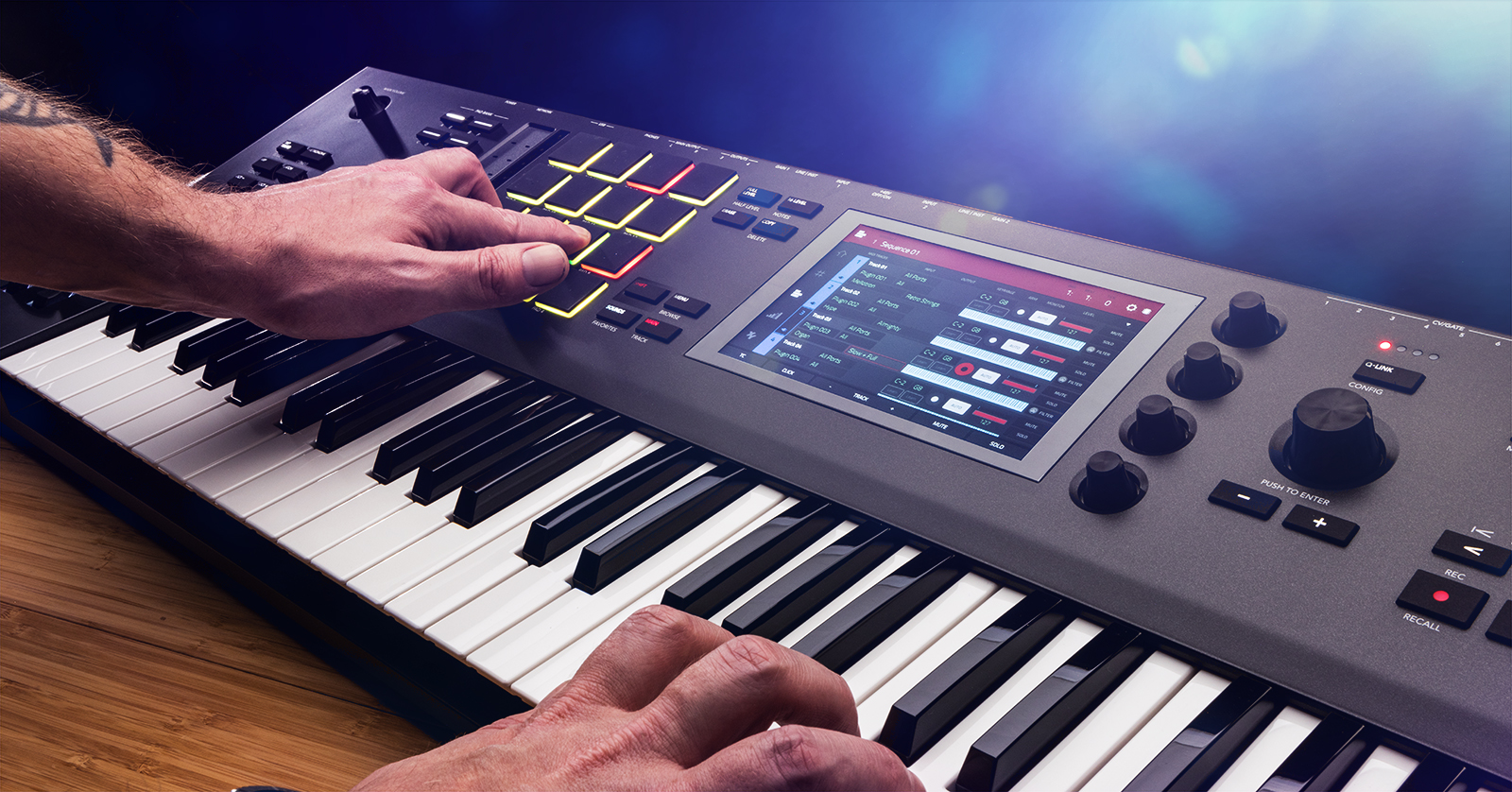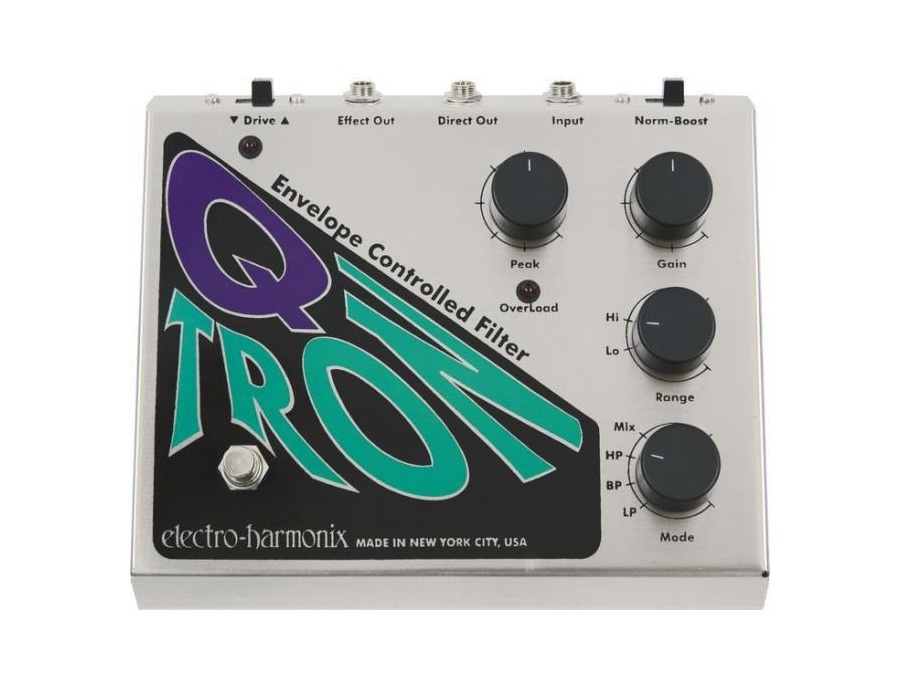Sampling Legends to Synth Wizards
When it comes to iconic gear in music production, few names evoke the kind of reverence as Akai’s MPC. Whether you’re an old-school beatmaker chopping samples or a synth enthusiast noodling around with futuristic sounds, Akai’s latest release, the MPC Key 61, might just be the powerhouse you’ve been waiting for.
But before we dive into why this beast is turning heads, let’s take a little trip back in time and uncover how Akai accidentally stumbled into the world of music and completely changed it forever.
A Happy Accident: Akai’s Unexpected Entry into Music
Akai didn’t start as a music tech giant. Founded in Japan in 1946, it was all about consumer electronics—like making tape recorders and radios. But in the 1980s, a partnership with Roger Linn, an American engineer and musician, changed everything. Linn was the mastermind behind the LM-1 Drum Computer, the first drum machine to use digital samples (actual recordings of sounds) instead of synthetic tones.
In 1988, Akai and Linn gave birth to the MPC60, a machine that revolutionized music production. For the first time, musicians could sample sounds, chop them up, sequence beats, and produce entire tracks—all from one device. It wasn’t long before hip-hop pioneers like Dr. Dre, J Dilla, and Kanye West fell in love with the MPC’s ability to turn obscure vinyl records into chart-topping hits.

The MPC became the golden ticket for producers everywhere, cementing its place in hip-hop, electronic, and pop music history. From that point on, Akai was no longer just a tape recorder company—they were the architects of modern sampling.
Fast Forward to Now: The MPC Key 61
Now let’s talk about Akai’s latest masterpiece, the MPC Key 61. It’s more than just a sequel in the MPC series—it’s a serious hybrid that combines the classic MPC workflow with a fully-fledged 61-key synthesizer. Imagine the power of the iconic MPC pads fused with the creative possibilities of a synth, all in one sleek device.
So, what makes this a must-have for today’s producers? Let’s break it down.
1. Synth Power Meets MPC Magic
- For the first time, Akai has married the best of both worlds: their classic drum pad magic with a professional-grade 61-key synthesizer. These semi-weighted keys with aftertouch are perfect for laying down intricate melodies, harmonies, and full chords with an expressive, natural feel.
2. Standalone Beast
- You don’t even need a computer to run this thing. The MPC Key 61 is completely standalone, meaning you can produce anywhere, anytime, without being tethered to a DAW. Whether you’re deep in your home studio or jamming out in a park (because why not?), this unit is as mobile as you are.
3. Classic MPC Pads
- Don’t worry—Akai hasn’t forgotten the pads. The MPC Key 61 has 16 velocity-sensitive, RGB-lit performance pads that are perfect for sampling, triggering beats, or chopping loops. It’s still got that addictive, tactile feel that made the original MPCs legendary.
4. Massive Sound Library
- With over 10 GB of factory content (yes, 10 GIGS), the MPC Key 61 is loaded with instruments, synthesizers, and sounds across every genre. You can also play around with 25 plug-in instruments like TubeSynth and Electric, so you’re never short on inspiration. Whether you want to sound like a 70s jazz-funk band or a futuristic EDM producer, it’s all in there.
5. Sampling Heaven
- The MPC Key 61 retains everything producers loved about the classic MPC workflow—sampling, chopping, sequencing—it’s all still here, but supercharged. The intuitive interface allows you to tweak, slice, and rearrange samples faster than ever, with the added benefit of layering keys into your production seamlessly.
6. Live Performance Ready
- Not just a studio tool, the MPC Key 61 is a live performer’s dream. The multi-touch 7-inch screen makes it easy to switch between projects, edit samples on the fly, or load up custom sets for your next gig. Plus, with MIDI, USB, and CV/Gate connectivity, it can integrate with almost any rig.
Artists Who Swear By The MPC (and Would Love the Key 61)
Akai’s MPC series has been the secret weapon of countless legendary artists. Here are just a few who’ve made the MPC their right-hand instrument—and would probably love the new Key 61 if they don’t already.
1. J Dilla
- The late, great J Dilla is synonymous with the MPC3000. His loose, off-kilter beats created a whole new sound in hip-hop. If Dilla were around today, there’s no doubt the MPC Key 61 would be right at the center of his studio, blending soulful samples with rich, expressive key work.
2. Kanye West
- Kanye’s early classics were shaped by the MPC2000XL, where he fused samples with original production. Kanye is known for his love of mixing genres, and the MPC Key 61 would offer him the best of both worlds—sampling old-school vinyl with modern synth touches.
3. Flying Lotus
- Experimental beatmaker Flying Lotus has been pushing the boundaries of electronic music for years, and much of his work revolves around the MPC. Known for creating intricate, complex beats, the MPC Key 61’s flexibility and power would be the ultimate tool for his off-the-wall production style.
The Final Word: Should You Get the MPC Key 61?
If you’re a producer or musician who’s serious about creating music—whether you’re crafting beats, playing live, or doing studio work—the Akai MPC Key 61 is a no-brainer. It’s an all-in-one powerhouse that lets you seamlessly transition from producing to performing without skipping a beat (literally).
So whether you’re looking to channel your inner Dilla, West, or FlyLo—or carve out your own unique sound—the MPC Key 61 is ready to be your creative engine.The Akai MPC Key 61 is the latest addition to Akai’s legendary MPC series, blending the traditional MPC workflow with a full-fledged 61-key synthesizer. This powerful workstation offers a seamless integration of production, sampling, and live performance capabilities, making it an essential tool for modern music creators. Before diving into the specifics of this new release, let’s take a step back and explore how Akai became synonymous with sampling and production in the first place.



